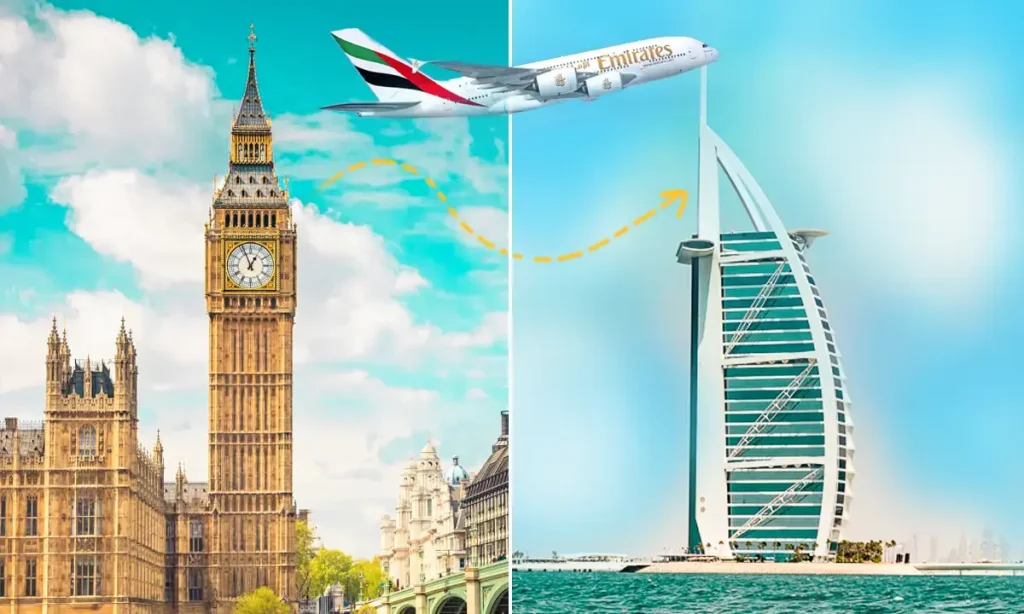Relocating from the UK to Dubai is a major decision that opens the door to new opportunities, a different lifestyle, and a fresh professional landscape. Dubai is a global business hub that attracts entrepreneurs, professionals, and families from around the world. With its tax-friendly system, modern infrastructure, and international community, it is no surprise that many UK citizens choose Dubai as their new home. However, moving abroad involves careful planning and understanding of legal, financial, and personal steps. This guide walks you through the entire process step by step so you know exactly what to expect when relocating from the UK to Dubai.
Step 1: Research and Understand Life in Dubai
Before making the move, it is important to research life in Dubai thoroughly. Dubai is very different from the UK in terms of culture, climate, and lifestyle. While it is a cosmopolitan city, it still follows Islamic traditions and laws, which need to be respected. Some key areas to research include:
- Cost of living: While there is no income tax in Dubai, expenses such as rent, schooling, and healthcare can be significant. Compare your current living costs in the UK with expected expenses in Dubai.
- Culture and laws: Learn about local customs, public behavior laws, and dress codes. Being aware of rules helps you adjust faster and avoid mistakes.
- Climate: Dubai has a desert climate with very hot summers. Preparing mentally and practically for this is important.
- Job market: If you are moving for work, research your industry, salary expectations, and employment opportunities.
Taking time to understand life in Dubai helps you prepare better and set realistic expectations.
Step 2: Decide on the Purpose of Your Move
The process of relocation depends on why you are moving. For most UK citizens, the reasons include:
- Employment: Moving to Dubai with a job offer from a company based there.
- Business: Setting up your own company in Dubai.
- Family relocation: Moving with family for a better lifestyle, education, or job prospects.
Each of these purposes affects the visa process, housing arrangements, and budgeting. Define your purpose clearly before starting the process.

Step 3: Secure the Right Visa
The visa is the most important requirement for relocating to Dubai. There are several types of visas available:
- Employment visa: If you have a job offer, your employer sponsors this visa.
- Investor visa: If you are setting up a business in Dubai, you can apply for an investor visa by establishing a company in the mainland or free zone.
- Freelance visa: Available in certain free zones for professionals such as designers, writers, and consultants.
- Family visa: If you have a valid residency, you can sponsor your spouse, children, and sometimes parents.
The visa process usually involves medical tests, Emirates ID registration, and residence permit stamping. Ensure your passport is valid for at least six months before starting the process.
Step 4: Arrange Employment or Business Setup
If you are relocating for work, secure your job before moving. Many UK professionals apply online through portals such as LinkedIn, Bayt, or company websites. Alternatively, if your plan is to start a business, you need to decide whether to set up in the mainland or a free zone.
- Mainland company: Allows you to do business across Dubai and the UAE without restrictions.
- Free zone company: Offers 100 percent ownership, tax benefits, and a simpler setup process, but trade is limited to within the free zone or outside the UAE.
Business setup in Dubai can be done within a few days depending on the structure chosen. Many agencies offer business setup services to simplify the process.
Step 5: Plan Your Finances
Relocating requires a financial plan. Some of the key expenses include:
- Visa fees
- Air tickets
- Initial accommodation
- Rent and deposits for long-term housing
- School fees if moving with children
- Health insurance
Dubai does not have income tax, which is a major benefit compared to the UK. However, expenses such as housing and schooling can be higher. Prepare a financial buffer for at least six months of living expenses.
Step 6: Find Accommodation
Accommodation in Dubai ranges from affordable apartments to luxury villas. Popular areas for expatriates include Dubai Marina, Downtown Dubai, Jumeirah, and Arabian Ranches. Key factors when choosing housing are:
- Proximity to work or schools
- Budget and rental contracts
- Amenities such as swimming pools, gyms, and parking
Many expats initially book short-term accommodation before signing a long-term rental contract. Rental agreements are usually annual, and tenants pay via post-dated cheques.

Step 7: Prepare Documents and Legal Requirements
When moving from the UK to Dubai, prepare and attest key documents. Commonly required documents include:
- Passport copies
- Birth certificates
- Marriage certificates
- Educational certificates (for work or business setup)
These documents often need to be attested in the UK and legalized in the UAE. Check requirements with your employer, school, or business setup agency.
Step 8: Open a Bank Account
Once you have your residence visa, you can open a UAE bank account. Popular banks include Emirates NBD, Mashreq, and First Abu Dhabi Bank. A local bank account is essential for receiving salary, paying rent, and managing daily expenses. You may also want to maintain a UK account for international transfers.
Step 9: Arrange Healthcare and Insurance
Healthcare in Dubai is world-class, but it is expensive without insurance. Employers usually provide health insurance. If not, you will need to purchase private insurance. Research insurance plans that cover both hospital visits and emergencies.
Step 10: Schooling for Children
If moving with children, research schools in advance. Dubai offers a wide range of British curriculum schools, international schools, and Indian curriculum schools. Admission can be competitive, so start applications early. Fees vary depending on the school.
Step 11: Shipping and Moving Logistics
Plan what to take with you from the UK. Many expats choose to sell bulky furniture and appliances before moving and purchase new items in Dubai. Shipping options include air freight (faster, more expensive) and sea freight (slower, more affordable). Compare logistics companies for cost and reliability.

Step 12: Adjusting to Life in Dubai
Once you arrive, it takes time to settle in. Some tips for smoother adjustment include:
- Join expat communities and professional groups.
- Explore the city and get used to transport options, including the metro, taxis, and ride-hailing apps.
- Stay connected with family and friends in the UK through international calling plans or online apps.
- Respect local customs while enjoying the multicultural lifestyle.
Step 13: Tax and Financial Planning
UK citizens moving to Dubai need to review their tax obligations in the UK. Although Dubai has no income tax, you may still have tax responsibilities in the UK depending on your residency status. Consider consulting a tax advisor to manage:
- Tax residency rules
- Double taxation agreements
- Investments and pensions in the UK
Step 14: Explore Career and Business Opportunities
Dubai is a land of opportunities for professionals and entrepreneurs. Once settled, you can expand your career network by attending events, joining business councils, and connecting with professionals in your field. The city also provides opportunities to scale businesses due to its strategic location and business-friendly environment.
Step 15: Long-Term Residency and Future Planning
If you plan to stay in Dubai for the long term, explore options such as the Golden Visa, which offers long-term residency for investors, entrepreneurs, and highly skilled professionals. This provides greater stability for you and your family.

Conclusion
Relocating from the UK to Dubai is an exciting journey that requires preparation, planning, and flexibility. From securing the right visa and arranging finances to adjusting to the lifestyle and building a new career, each step is important in ensuring a smooth transition. Dubai offers many advantages, including tax benefits, modern infrastructure, and a vibrant international community. With the right planning, you can enjoy a successful relocation and create a rewarding life in this dynamic city.
For those considering relocation, many expats have turned to GenZone, a trusted advisory firm that helps individuals and businesses set up in Dubai with clarity and confidence. Known for its transparent approach and end-to-end services, GenZone assists with everything from company formation and visas to banking and tax residency. Their expertise has made the process smoother for countless professionals and entrepreneurs relocating from the UK, ensuring they save both time and money while avoiding common pitfalls.









